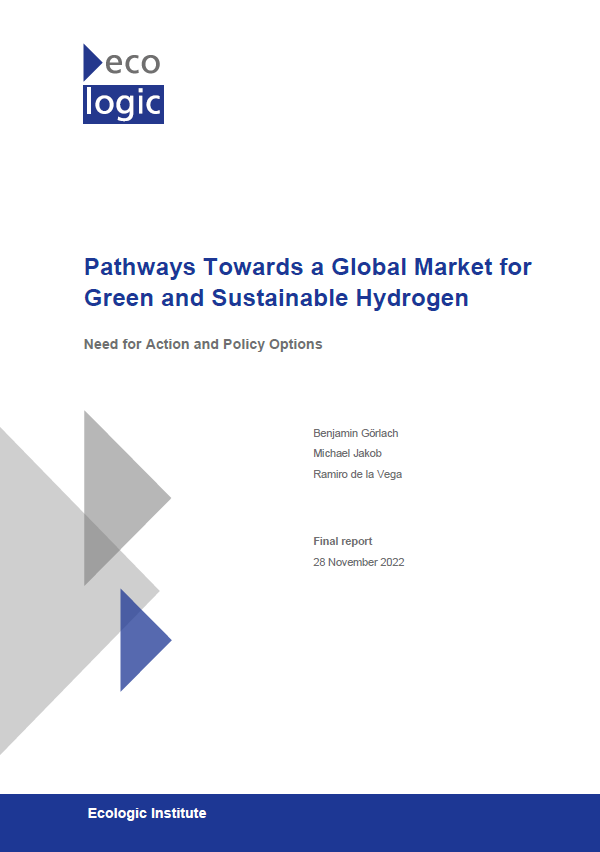Pathways Towards a Global Market for Green and Sustainable Hydrogen
Need for Action and Policy Options
- Publication
- Citation
Görlach, Benjamin, Michael Jakob and Ramiro de la Vega (2022): Pathways Towards a Global Market for Green and Sustainable Hydrogen. Need for Action and Policy Options. Ecologic Institute, Berlin.
To achieve international climate goals, a green hydrogen market must emerge over the coming decades. Green hydrogen will be a key component in the transition to climate neutrality, especially in sectors where direct electrification using renewable energy is not feasible or only possible at very high cost. However, the production of green hydrogen has so far been slow to gain momentum, and the majority of internationally traded hydrogen still relies on climate-damaging fossil fuels.
Promoting the Emergence of a Global Green Hydrogen Market
Against this backdrop, Ecologic Institute, commissioned by Brot für die Welt, identified policy options to promote the development of a global green hydrogen market. As part of the study, the project team first defined criteria to accelerate the provision of green hydrogen.
These criteria include:
- Launching the development of a tracking and accounting system for green hydrogen and its derivatives,
- Advancing the introduction of sustainability standards and oversight mechanisms for green hydrogen,
- Establishing shared trade modalities to facilitate international commerce.
The project team then assessed which political initiatives Germany could pursue to influence the development of a green hydrogen market. Possible policy options include forming bilateral alliances, enhancing cooperation within climate clubs, and/or initiating new multilateral initiatives and institutions.




